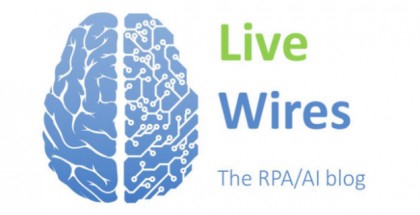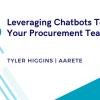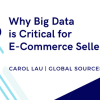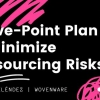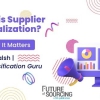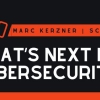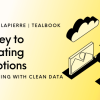Automation is unquestionably the flavour of the month in business chatter today. Robotic process automation (RPA), and a storm of other smart automation approaches like Artificial Intelligence, are being pitched and perceived as the NEXT BIG THING, akin to the emergence of outsourcing some 30 years ago, and offshoring 15 years ago. Smart automation through RPA or AI promises massive efficiency savings, increased compliance, faster processing, deeper insights and any number of other good things for transaction processing, customer engagement, IT, Finance, HR, Procurement and other business processes. What is more RPA and AI offer this change at low cost and high speed, setting them apart from their automation ancestors such as ERP and applications development – which consume years of implementation effort. So with RPA and AI there are new kids on the automation block, and it is time to find out who they are.
The speed of change, from initial rumours to the current frenzy of hype and expectation, has been amazing. The first visionaries emerged with wild and amazing tales of RPA just over three years ago. Since then we have had a period of debate and theorisation – is RPA just ‘macros on steroids’ or glorified workflow, or something genuinely new? (It is – see the next post). But in the last year in particular, the trickle of anecdotes has turned into a torrent of real live cases of new types of automation being deployed in reality, and to great effect. As an adviser on outsourcing and operations, my own initial scepticism has been steadily eroded as I too have seen real cases have a big impact on client operations – in insurance, banking, transportation, telecoms and other sectors.
The more examples that emerge, the more it seems that RPA, AI and other emerging automation technologies will overturn the established order in the services industry. Long-standing and successful ways of working based around labour-intensive shared services and large-scale resource outsourcing may cease to be relevant for many processes. This change could happen within a few years. For example, if an RPA tool can replace and improve fiddly and inefficient manual data checking and processing tasks for a new business team in a matter of months, why will this work still be done by humans in five years? If a contact centre can use automated software with artificial intelligence to talk with clients, what parts of the process will customers demand be delivered by humans? As the roster of use cases extends from a handful into dozens and more, initial questions are turning from ‘why automate?’ to ‘why not’?
Projecting this initial promise forward across the economy, there are some pretty startling future scenarios, ranging from a world in which RPA and AI quickly become widespread in organisations of all kinds, to a more extreme robotic takeover in which vast swathes of the workforce are displaced by a tireless, error-free and unregulated electronic workforce. But we are getting ahead of ourselves. Even the near future is far from clear. Most of the chewy questions remain as yet unanswered – what does ‘smart automation’ mean for businesses? How far will it go? Can it be scaled up significantly? What does it mean for established ways of working such as outsourcing and shared services? Who are the key players? What does a good RPA/AI strategy look like? What are the commercial models? What about my current contracts? How will the different technologies interact? Who will make the tea?
A few caveats. Smart automation encompasses a very wide range of tools and technologies – it is not one thing. We are not talking about physical robots: smart automation lives on servers and looks more hi-fi than sci-fi. Real artificial intelligence may or may not be near. Most importantly, no-one yet knows all of the answers – outsourcing service providers, automation software vendors, consultants and their clients are all looking to make sense of these new trends, and anyone telling you that the future is manifestly clear is lying or deluded or both.
That is where this blog comes in. As I continue to explore this emerging landscape, we will look at the big questions, meet the key personalities and players, and provide a provocative point of view on what it all means. We hope you come on the journey with us.


